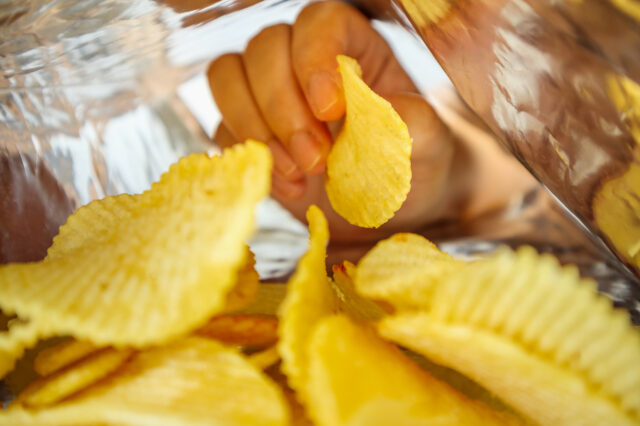Don’t Eat Your Stress
There are some steps you can take to ensure when the next wave of stress hits, you do not find yourself in an empty bag of Doritos.

Many of us have been in stressful situations that end with seeking out chips, cookies, ice cream or all three as a temporary source of relief. The trigger could be something small, like a lengthy commute, or something more significant, such as a worldwide global pandemic that has shut down much of life as we know it. No matter the source, these cravings are usually the strongest when we are at our emotionally weakest. There are some steps you can take to ensure when the next wave of stress hits, you do not find yourself in an empty bag of Doritos.
Understand the cause
First, understand what you are up against. Stress triggers the “fight-or-flight” response, which releases cortisol into our blood stream. This hormone triggers hunger, so the body has the energy to deal with whatever stressor we may be facing. This is an evolutionary mechanism bestowed upon us as many of the earlier stressors in human life were wild animals, and not wild co-workers. We turn toward junk food during these times because our body craves foods that are high in calories, sugar and fat.
Talk it out
It is tough to overcome biology — the next step is to go face-to-face with the source of your stress. Trouble at work? Talk to your supervisor about the issue. Trouble at home? Talk to your family about what is causing you frustration. Talking can help get at the root cause of the issue. It may not immediately get you to your destination, but it can move you in the right direction. Find out if your employer offers an Employee Assistance Program or other resources. UF Health Jacksonville offers professional counseling resources for employees though our EAP provider and the CHaMP Center.
Try something new
In addition, look toward new outlets to help you handle any ongoing stress. Food is something we may typically seek just out of habit, but other routines like going for a walk, writing in a journal or trying mediation can also bring relief without the same side effects as overeating. Food is one of our most popular anti-anxiety medications, but it does not have to be.
More tips and resources on healthy nutrition during the COVID-19 outbreak can be found here.